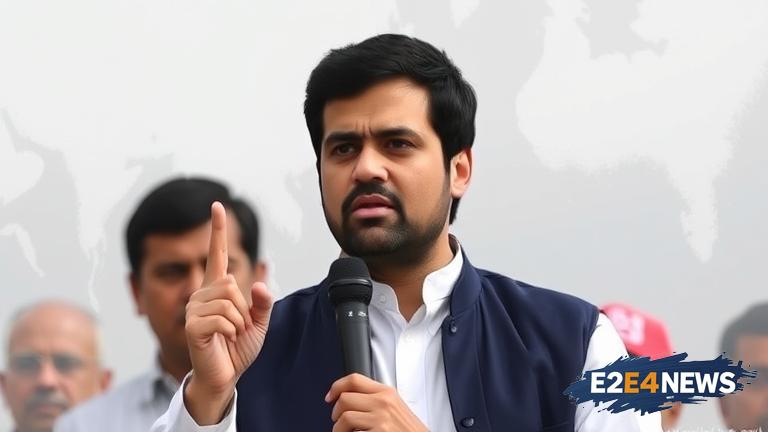In a recent statement, Rahul Gandhi, the leader of the Indian National Congress, claimed that Prime Minister Narendra Modi would not accuse US President Donald Trump of lying, even if the latter were to make false statements. This assertion has sparked a heated debate on the nature of diplomatic relations between India and the United States. Gandhi’s comment was made in the context of Trump’s tendency to make controversial and factually incorrect statements. The Indian National Congress leader suggested that PM Modi’s reluctance to call out Trump’s lies is a result of the strategic importance of the India-US relationship. The statement has been met with criticism from the ruling Bharatiya Janata Party (BJP), which has accused Gandhi of trying to politicize the issue. The BJP has argued that PM Modi’s approach is guided by the principles of diplomacy and the need to maintain good relations with other countries. However, the opposition has countered that the government’s silence on Trump’s lies undermines the country’s commitment to truth and transparency. The debate has also raised questions about the impact of Trump’s presidency on global politics and the role of India in the international community. As the US President is known for his unpredictable and often factually incorrect statements, countries like India are faced with the challenge of navigating complex diplomatic relationships. The Indian government has been keen to strengthen ties with the US, and PM Modi has made efforts to build a personal rapport with Trump. However, the opposition has argued that this approach comes at the cost of compromising on core values such as truth and integrity. The issue has also sparked a discussion on the role of social media in shaping public discourse and the spread of misinformation. Trump’s use of Twitter to make policy announcements and personal attacks has been widely criticized, and the Indian government’s response to his statements has been seen as inadequate. The debate has also highlighted the importance of fact-checking and the need for greater transparency in governance. As the world grapples with the challenges of fake news and propaganda, countries like India are faced with the task of balancing diplomatic relationships with the need to uphold truth and integrity. The statement by Rahul Gandhi has added a new dimension to the debate, with many arguing that the government’s silence on Trump’s lies is a sign of weakness. Others have countered that PM Modi’s approach is a reflection of the complexities of international diplomacy, where countries often have to make difficult choices to protect their interests. The issue is likely to continue to be a topic of discussion in the coming days, with the opposition seeking to corner the government on its stance on Trump’s truthfulness. As the debate rages on, it remains to be seen how the government will respond to the criticism and whether it will revisit its approach to dealing with Trump’s controversial statements. The incident has also raised questions about the role of the media in holding those in power accountable and the need for greater scrutiny of government actions. In conclusion, the statement by Rahul Gandhi has sparked a significant debate on the nature of diplomatic relations between India and the US, with many arguing that the government’s silence on Trump’s lies is a sign of weakness. The issue has highlighted the complexities of international diplomacy and the challenges of navigating complex relationships in a rapidly changing world. As the world watches the developments in India-US relations, it remains to be seen how the government will respond to the criticism and whether it will revisit its approach to dealing with Trump’s controversial statements.
